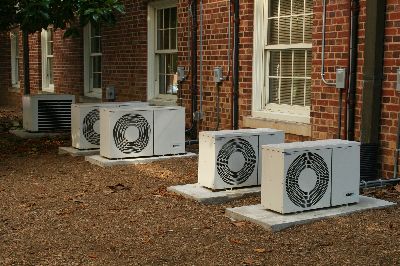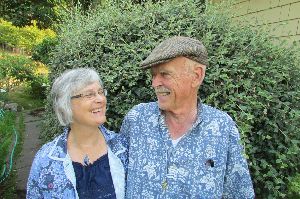HOW BAD IS AIR CONDITIONING?

Have you ever wondered what air conditioning has to do with Christian faith? Its obviously not something that Jesus thought about so why should we get concerned? A couple of years ago I read this fascinating article on conversation at Alternet about whether we can and should live without air conditioning. The article Air Conditioning is Terrible for the Earth – Here’s How To Live Without it which got me thinking about my faith and the unexpected responsibilities it places on me over the summer months.
The East Coast is sizzling and here in Seattle we are expecting 80s over the next few days, which has Seattlites complaining about the heat and dashing out to buy fans and air conditioners. So it seems a good time to think about this.
This is not a topic Christians spend much time thinking about but I feel it is an important part of our responsibility to the earth. Air conditioners account for about 6% of America’s residential energy use. All that air-conditioning releases about 100 million tons of carbon dioxide each year.
Summer is just beginning and there are a number of ways to cut down the inside temperature of our houses without using energy intensive air conditioning – some simple, some not so simple. So lets start with some of the simple ones first:
- Plant deciduous trees on the south side of the house in the northern hemisphere on the northern side of the house in southern hemisphere.
- If you are still waiting for those trees to grow close windows and curtains during the day in rooms that get direct sun; open windows and doors at night.
- Make sure roof and walls are well insulated. Seal gaps around windows and doors so that heat cannot enter.
- Move the air – fans can decrease the temperature by 5 – 8 degrees and opening windows for flow through air will similarly reduce temperatures.
- Wear clothing made of materials that breathe – like cotton or wool (yes wool is warm in winter & cool in summer). Loose fitting garments are better than tight fitting. Also get rid of those shoes or wear sandals. Feet are good heat exchangers.
- Wet down your clothing with a spray bottle and stand in front of a fan, wear a wet hat or wipe down the back of your neck with a wet cloth.
- Drink plenty of water (not alcohol or sugar drinks)
- Turn off any unnecessary appliances. All electrical appliances generate heat; particularly refrigerators and TV’s. Plasma screens in particular are known to create a great deal of heat, to the point that some refer to them as space heaters. Other huge heat producers are clothes dryers and dishwashers so take advantage of the cool evenings to hang your clothes outside or put them on a drying rack in front of your fan and take advantage of the cooling flow of air.
- Replace your incandescent lights with CFLs.
- In dry climates replace traditional air conditioning units with evaporative (swamp or desert) air conditioners.
- Retreat to the basement if you have one – it will be the coolest part of the house.
And now for some more challenging solutions:
- Build houses with lots of overhang – porches, verandas and eaves all make a difference in the heat
- Learn from the termites. Here is an amazing building design in Zimbabwe based on the air cooling system found in a termite hill.
- Build an underground house and cut do away with air conditioning costs
- Put a green roof on your house
- Build on stilts. This increases air flow through the house though if you live in a place that gets cold in the winter this may not be very helpful.
- Get involved in your community and advocate for the replacing of asphalt with parks and green spaces. Cities absorb more solar energy during the day and are slower to release it after the sun sets, making for uncomfortable nights and no real relief from the heat. Because they don’t cooled down as much overnight, mornings are warmer and the thermometer goes right back up when the sun starts beating down the next day. Green areas help keep the temperatures down.
I am sure that there are lots of other ideas that I have not thought of here – how do you keep cool in the hot weather?
About Christine Sine

Christine Sine is the founder and facilitator for Godspace, which grew out of her passion for creative spirituality, gardening and sustainability. Together with her husband, Tom, she is also co-Founder of Mustard Seed Associates but recently retired to make time available for writing and speaking. She describes herself as a contemplative activist, passionate gardener, author, and liturgist. She loves messing with church traditions and inspiring followers of Jesus to develop creative approaches to spirituality that intertwine the sacred through all of life. She facilitates workshops on spirituality and gardening, simplicity and sustainability and how to develop a more spiritual rhythm for our lives. Christine is inspired by Celtic Christian spirituality, which has opened her eyes to the God who is present in every moment, every experience and every place. She is open to learning from everyone and everything around.
